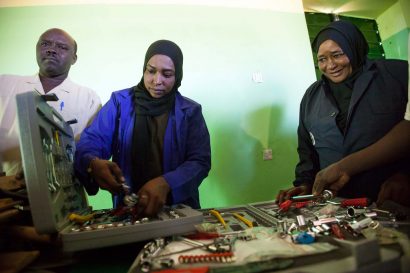Tag: Training
Muriel Dunbar, Senior Skills Adviser at Cambridge Education, provides a definition of skills and looks at how widely this extends in terms of educational backgrounds, types of skill, range of ages and range of sectors. She defines skills as: ‘the combination of technical, cognitive and behavioural competences which enable a worker to acquire and retain… Read more
This paper is primarily concerned with raising a higher level question about the nature of knowledge and evidence used in planning, implementing and evaluating skills reforms. The paper notes the very high level of official optimism about the benefits of the governance reform process but the real lack of hard evidence across the region for… Read more
This report focuses on research studying China’s re-emergence as a major player in human resource cooperation with Africa. China has been widely analysed, as an investor in the developing world, including very substantially in infrastructure and extractive industries in Africa. However, there has been little examination of China’s key role in education and training cooperation, or… Read more
A training approach for community health volunteers increased skilled birth attendance rates in six rural districts in Zambia by 63 percent from baseline over a two-year period. The training approach was developed for adult community health volunteers operating in a low literacy context. The UK aid-funded Mobilising Access to Maternal Health Services in Zambia (MAMaZ)… Read more
Many of the papers in this report identify key interventions which are then recommended to be delivered using an integrated or continuum of care approach. The evidence also emphasises the need for attention to the local situation when implementing interventions and note the limitations of vertical programmes in addressing co-morbidities. The report consists of the… Read more
mHealth refers to medical and public health practice supported by mobile devices. Mobile phones and internet technology are being used in developing countries for health projects with some success. The bulk of the literature is on phones being used for workers to communicate with patients and for reporting and surveillance, rather than for communication between… Read more



